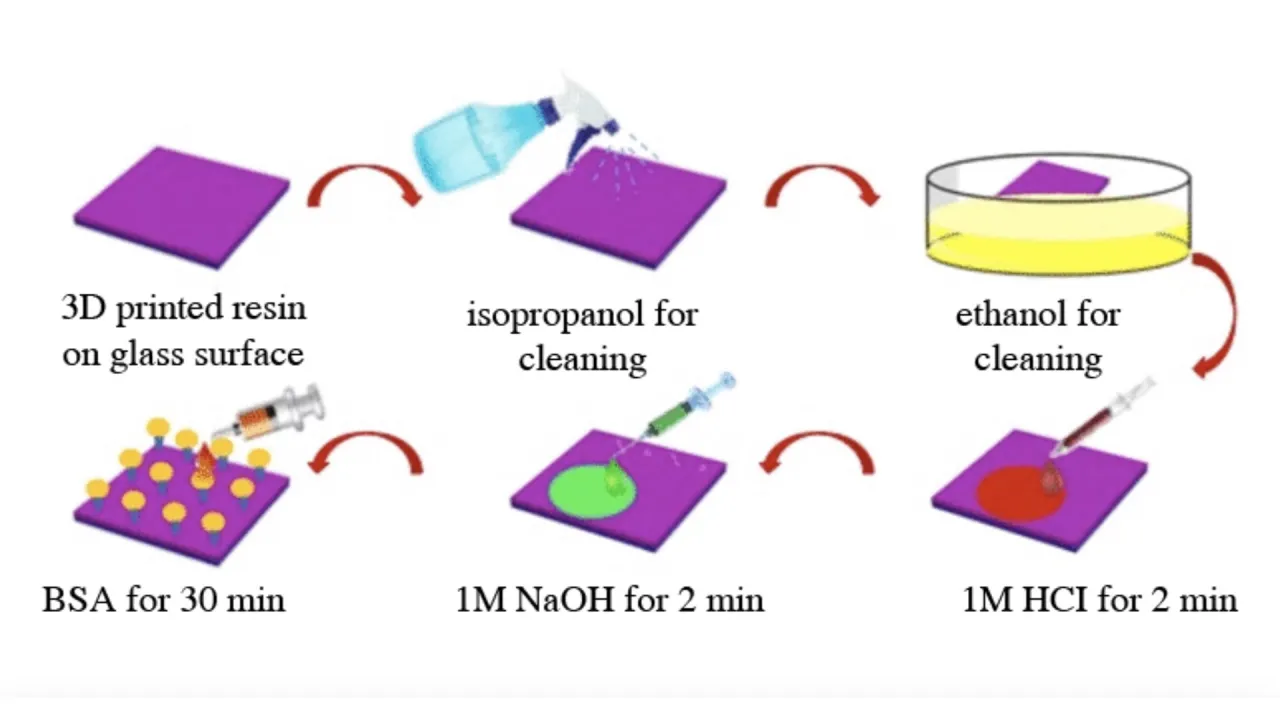About
Shilpa Siyashankar, et al., "Compatibility analysis of 3D printer resin for biological applications" Micro & Nano Letters, 11 (10), 2016, 654.
The salient features of microfluidics such as reduced cost, handling small sample and reagent volumes and less time required to fabricate the devices has inspired the present work. The incompatibility of three-dimensional printer resins in their native form and the method to improve their compatibility to many biological processes via surface modification are reported. The compatibility of the material to build microfluidic devices was evaluated in three different ways: (i) determining if the ultraviolet (UV) cured resin inhibits the polymerase chain reaction (PCR), i.e. testing devices for PCR compatibility; (ii) observing agglutination complex formed on the surface of the UV cured resin when anti-C-reactive protein (CRP) antibodies and CRP proteins were allowed to agglutinate; and (iii) by culturing human embryonic kidney cell line cells and testing for its attachment and viability. It is shown that only a few among four in its native form could be used for fabrication of microchannels and that had the least effect on biological molecules that could be used for PCR and protein interactions and cells, whereas the others were used after treating the surface. Importance in building lab-on-chip/micrototal analysis systems and organ-on-chip devices is found.
